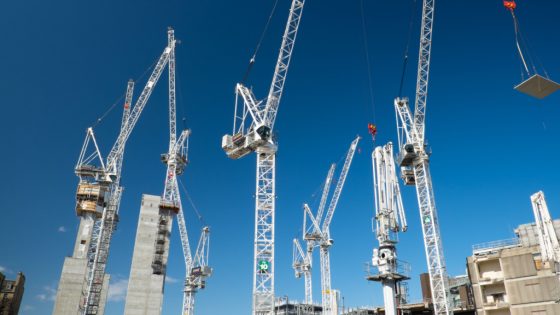Underlying construction activity will rise slightly this year as an early election and strengthening economy provide more confidence to investors, a key report has predicted.
Industry intelligence specialist Glenigan forecasts a 3 per cent increase in 2024 in projects worth under £100m getting underway on site.
Its report then predicts a 7 per cent hike next year and a further 6 per cent growth in underlying workloads the following year.
Hotel and leisure work will lead the recovery this year alongside health construction with both areas seeing 14 per cent growth, according to Glenigan.
This will be tempered by a 12 per cent drop in industrial starts and a 5 per cent fall in education schemes, the study predicts.
The private housing subsector is forecast to see a 14 per cent increase in new projects in 2025, with offices just behind on 12 per cent.
But the largest single step will be taken by retail, which will soar by almost a fifth in 2026, according to the report.
Glenigan economic director Allan Wilen said: “The UK construction sector is still facing significant headwinds as the economy struggles to pick back up. However, there are signs of growth in several key areas, particularly in the private verticals, signalling a gradual recovery from mid-2024.
“In the private housing sector, for example, we anticipate starts will pick up in the latter half of this year, driven by improved affordability and brighter economic prospects.
“Similarly, we’re forecasting improved activity in consumer-related verticals such as retail, and hotel and leisure, as a gradual easing in price inflation is set to provide a boost to households’ spending power.
“Elsewhere, structural changes are expected to create new opportunities in office refurb and fit-out, while logistics is poised for renewed investment fuelled by online retail growth.”
Wilen said purse strings were likely to loosen once the new government was in place, particularly in the public sector.
“The purdah period leading up to 4 July prevents civil servants from making any announcements that could influence voting intentions,” he said. “As a result, decisions will be delayed until post-election.
“This means we’ll have to wait until the new government’s Spending Review for further clarity on budget allocation, and this might not be until Q4 2024.”

